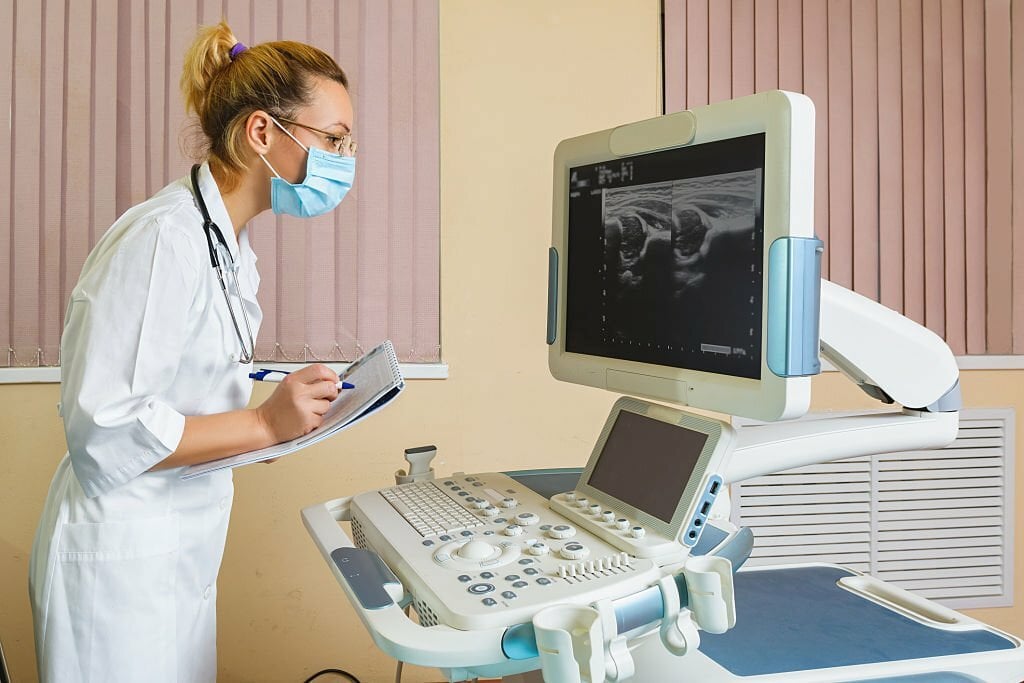How Long Does It Take to Become a Medical Sonographer?

Becoming a medical sonographer can be a rewarding career choice for those interested in the field of healthcare. This profession involves using specialized equipment to capture images of a patient's internal organs and tissues. Medical sonographers play a vital role in helping doctors diagnose and treat various medical conditions. If you're considering a career as a medical sonographer, you may be wondering how long it takes to become certified in this field. In this blog post, we will explore the training requirements and the time it takes to become a medical sonographer.
Medical Sonographer training requirements
To become a medical sonographer, you will need to meet certain training requirements. Here are the common requirements:
- Education: Completion of an accredited sonography program is essential. These programs cover topics such as anatomy, physiology, patient care, and ultrasound physics.
- Clinical experience: Hands-on experience in a clinical setting is necessary to develop the practical skills required for the job. This experience is typically gained through internships or clinical rotations.
- Certification: Obtaining certification from a recognized professional organization is highly recommended. Certification demonstrates your competency and dedication to the field.
- Continuing education: To maintain your certification, you will need to participate in continuing education activities. This allows you to stay updated with the latest advancements in the field and maintain your skills and knowledge.
How to get a job after classes
After completing your medical sonographer training, you may be wondering how to land a job in this field. Here are some steps you can take to increase your chances of getting hired:
-
Prepare a professional resume: Create a well-written resume that highlights your education, clinical experience, and any relevant certifications or specializations.
-
Network: Reach out to professionals in the field of medical sonography. Attend industry conferences, join professional organizations, and utilize online platforms to connect with other sonographers and potential employers.
-
Gain experience through internships or externships: Consider applying for internships or externships at hospitals or healthcare facilities. This will provide you with valuable hands-on experience and give you an opportunity to make connections in the industry.
-
Stay updated with job postings: Regularly check job boards, hospital websites, and professional networking platforms for job opportunities. Set up job alerts to be notified when new positions become available.
-
Prepare for interviews: Practice common interview questions and prepare concise, thoughtful answers. Be prepared to discuss your education, clinical experience, and any relevant skills or certifications.
-
Showcase your skills and professionalism: During interviews, demonstrate your technical skills, attention to detail, and ability to work well with patients and colleagues. Emphasize your dedication to providing quality patient care and your commitment to ongoing professional development.
-
Follow-up: After interviews, send thank-you notes or emails to express your gratitude for the opportunity. This can leave a positive impression on potential employers.
-
Consider additional certifications or specializations: Continuing your education and obtaining additional certifications or specializations can make you stand out in a competitive job market. It shows your commitment to professional growth and can open up new career opportunities.
Final Thoughts
Becoming a medical sonographer requires dedication, education, and clinical experience. The time it takes to become certified can vary depending on the educational path you choose and the requirements of the certification exam. By completing an accredited sonography program, gaining hands-on clinical experience, and obtaining certification, you can embark on a rewarding career in medical sonography. Remember to utilize resources like Dreambound to find and compare certification classes that best suit your needs and career goals.
Dreambound has you covered with a series of detailed guides, each designed for a different state. And if you're elsewhere or considering a move, we've got more guides that might fit your needs.
- How to Become a Medical Sonographer in Alabama
- How to Become a Medical Sonographer in Kansas
- How to Become a Medical Sonographer in Michigan
- How to Become a Medical Sonographer in New Jersey
- How to Become a Medical Sonographer in South Dakota
Exploring a variety of professional opportunities? Dreambound has many extensive guides to help you make informed decisions. Check out these guides:

Stephanie Dayak is the go-to person for everything related to automation and integrations at Dreambound. As a Certified Tax Technician turned tech whiz, her sharp eye for detail and passion for efficiency become evident in every project she undertakes. When not solving tech puzzles, she's out exploring the local food scene, cozying up with her dogs, or plugged into a thought-provoking podcast. She's an ardent believer in mixing fun with functionality!


